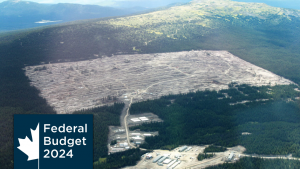A new report from Canada’s Ecofiscal Commission on water usage urges Canada to take a national approach to ensuring a full water metering system is in place to enable user fees, motivate conservation, fund infrastructure and protect water quality.
The report includes five case studies that highlight the progress Canadian municipalities are making to improve the sustainability of their system, offers 10 best practices for monitoring water rates and makes six policy recommendations, with user fees being the dominant ask.
Montreal is singled out as the only large city without a universal user fee system, while The Battlefords, Sask. is noted for a two-tiered user fee system that takes into account low-income earners.
The report encourages full-cost-recovery analysis in municipal systems and praises Gibsons, B.C. for its attempts to incorporate its local ecosystems into its roster of water assets. The report, titled Only the Pipes should be Hidden, is attributed to economists from across the country including Don Drummond from Queen’s University in Kingston, Ont. and Ecofiscal Commission chair Chris Ragan of Montreal’s McGill University.
"To me it is a national issue," said Ragan. "It is not a federal issue, but it is an issue that is relevant across all parts of the country. If you are a town planner or city planner in a city of any size, there are good lessons to be drawn from elsewhere in this report."
Among its recommendations, the Ecofiscal Commissions urged municipalities to rely on multi-rate user fees to recover costs and encourage conservation; it said all municipalities should develop an asset-management plan and full-cost-recovery strategy; it argued municipalities should include natural assets within their water strategies; it recommended that provincial and federal governments encourage municipalities to adopt the best practices contained in the report; and it urged the federal government to reinstate the Municipal Water and Wastewater Survey, abandoned by Environment Canada.
One other recommendation pointed the finger at the national Public Sector Accounting Board (PSAB), whose standards currently prevent municipalities from including natural assets in their cost-recovery frameworks. The Gibsons plan is thus currently unacceptable. The Ecofiscal Commission wants the policy revisited.
"What I didn’t imagine was the PSAB’s prohibition of this exercise," said Ragan. "Gibsons is really on the frontier in terms of good policy."
Ragan acknowledged that groups have been advocating for water meters going back over 25 years, and that water meters are now used in 98 per cent of Ontario households. But that is only part of the equation, he said.
"The water meter is in our view a necessary but not sufficient part of the policy package," said Ragan.
"Once you have water meters in place, you are able to design sensible user fees, especially with a two-part fee structure, a fixed component and volumetric component. It is great that Ontario has meters, but now take the next steps and do the best practices, which is estimate your future revenue sources, estimate your future costs, all of your costs, figure out the infrastructure gap, and then design user prices that close that gap."
The report compares user fees with other sources of funding for infrastructure such as property taxes and one-time government grants and concludes user fees are the most fair and stable.
"Property taxes don’t link our user fees to the service, but user fees do link that way," said Ragan.
"But it is also the need to pay. Because if we are going to have these big infrastructure deficits, we are going to run into water quality problems."
Ragan said he had recently participated in an interview on Montreal radio and heard arguments that user fees are not the only way to encourage conservation, there can be programs such as low-flow toilets that are effective. The Montrealer said he agreed with that point and noted that his hometown is currently in the midst of a major water infrastructure replacement program.
"But even if you are going to replace faulty infrastructure, you will still have an issue about how you are going to get people to pay for their water on an ongoing basis," said Ragan.
"Not surprisingly, Montreal is also among the highest in Canada among water users. They are about 55 per cent above the Canadian average in terms of residential water use."











Recent Comments
comments for this post are closed